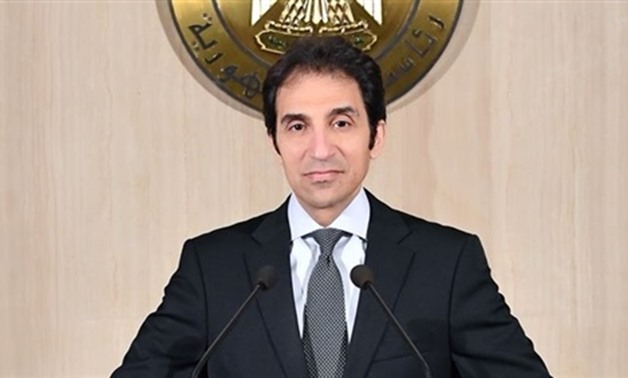
FILE: Presidency spokesperson Bassam Rady
CAIRO – 16 February 2019: Egypt has not recorded any case of illegal immigration since 2016, Egypt’s presidency spokesperson Bassam Rady announced on Friday.
On the sidelines of Munich Security Conference 2019, President Abdel Fatah al Sisi spoke about Egypt’s successful experience in controlling illegal immigration and countering terrorism especially in Sinai.
He added that Egypt did not ask for any aid from European countries, and managed by its own to stop illegal immigration. “Not even one case was recorded since September 2016,” Rady stated. He explained that the Egyptian authorities were keen to end illegal immigration and to curb the cases of illegal immigration deaths.
Rady affirmed that Egypt now has good experience in combating terrorism and extremism through various aspects, “In addition to combating extremism through military and intelligence cooperation, we also work on correcting misconceptions regarding moderate Islam,” Rady explained.
CAIRO - 4 June 2018: Escaping harsh living conditions and seeking to improve their living standards, many Egyptian youth took illegal migration boats to Europe, most notably to France and Italy, unbeknown to them the mysterious fate that awaits them in the darkness across the Mediterranean Sea.
Last June, former Youth and Sports Minister Khaled Abdel Aziz said that the government has not spotted citizens illegally fleeing the country by sea since 2016, due to the coast guarding strategy.
“We lost many of our youth during illegal immigration attempts,” Abdel Aziz stated, adding that illegal immigration distorts the image of the country.
Abdel Aziz suggested the provision of close-to-home jobs for the youth, a suggestion which he said would discourage illegal immigration. He said that the huge national projects have provided 2.1 million jobs during the past two years.
Concerning human trafficking, Abdel Aziz said that some countries exploit underage immigrants and employ them in some industries that lack professional manufacturers, especially in Europe. In addition, these states refuse to send them back to their countries, he added.
Comments
Leave a Comment